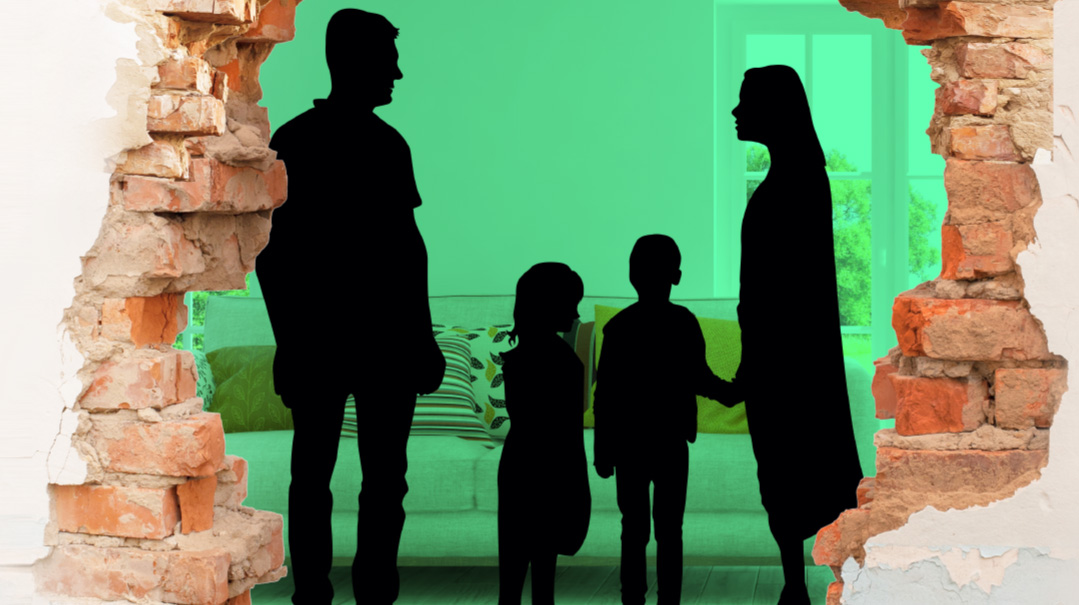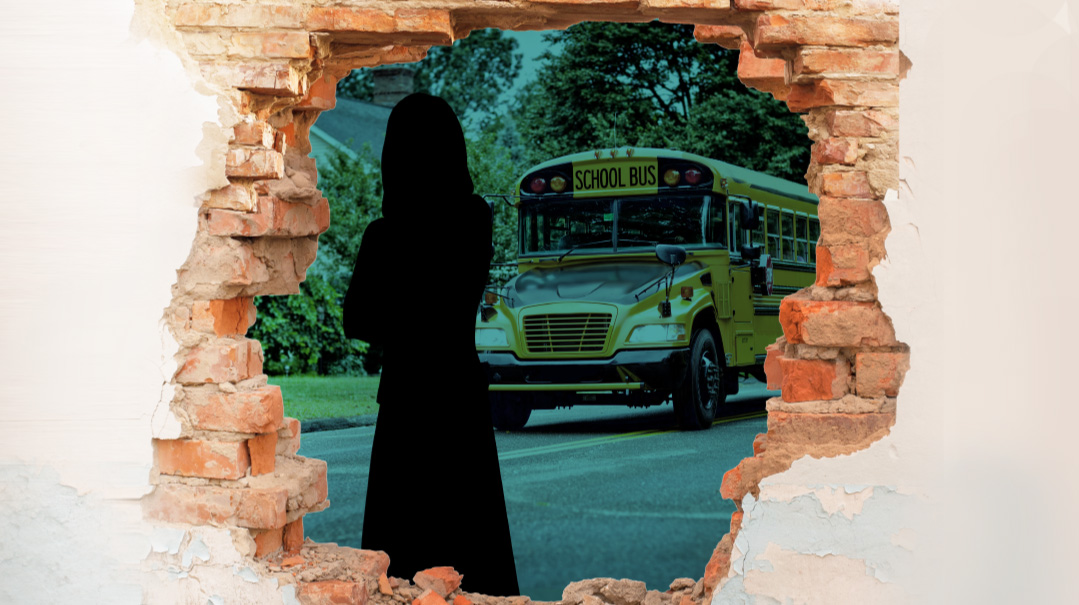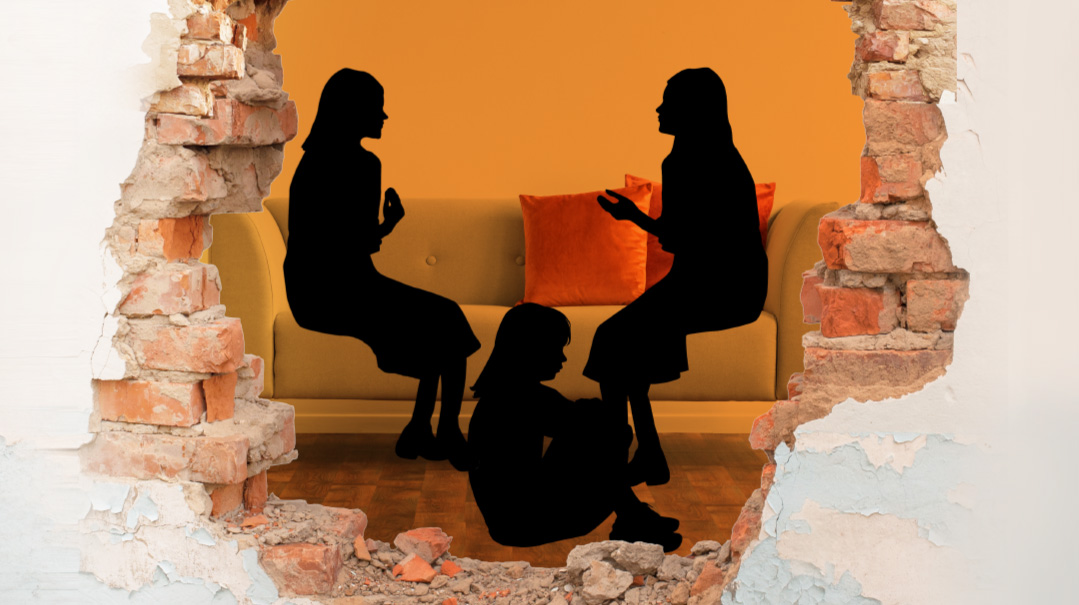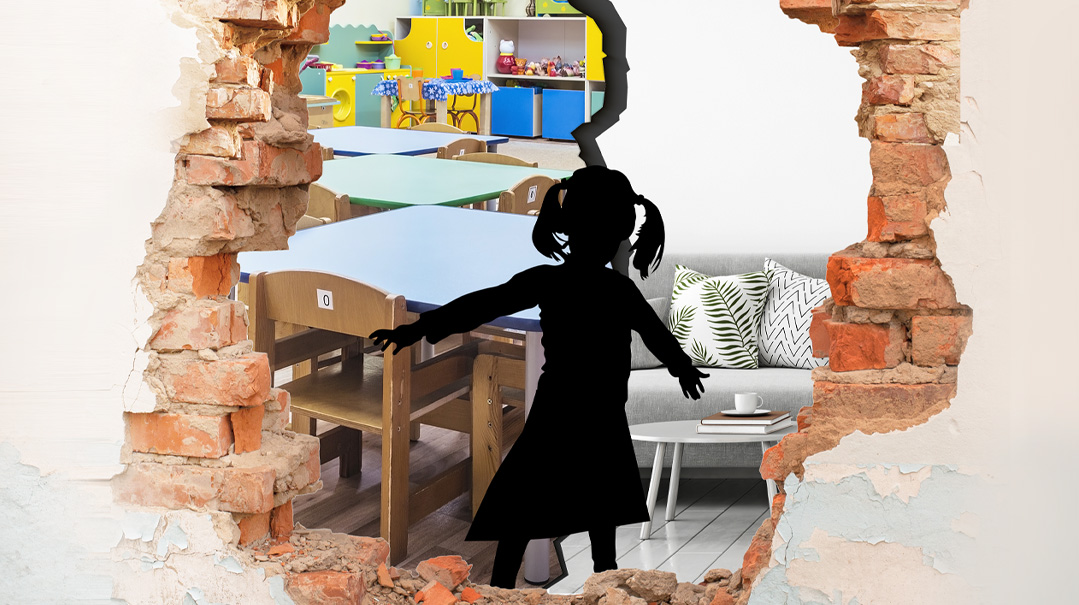I Think My Son-in-Law Is Depressed and Needs Help

Despite the passage of time, he seems to be falling deeper into this dark mode

Moderated by Faigy Peritzman
My son-in-law is a sweet, unassuming guy, whom we love and admire. He comes from a very well-known family of askanim, people who are well-meaning, yet strong minded and action-oriented. We’ve always been impressed how he’s developed a strong self, despite family pressure and prominence. It’s essential to him to be independent, and we respect that need.
Recently, his rosh yeshivah, a great talmid chacham and an incredible individual, was niftar. While we all mourned his passing, my son-in-law, who was especially close with him, hasn’t managed to pull himself out of his mourning. Where once he was an avid masmid, trying to fit in learning at all hours of the day, now he feels like without the goal of pleasing his rebbi, he’s lost his drive to accomplish. Whenever he needs to make a decision, he gets paralyzed, shrugging aimlessly, and saying, “How should I know? I’d need to ask Rebbi this.”
Despite the passage of time, he seems to be falling deeper into this dark mode, and my daughter is at a loss how to help him. When I offered to speak to my son-in-law directly, my daughter was horrified. She feels that her husband would be insulted at our interference, as if we don’t trust him to resolve his own issues.
My mechutanim live out of town and haven’t seen their son for some time now. I’ve suggested to my daughter that she speak to them, but she feels she’d be betraying her husband by going behind his back.
Would I be betraying him if I speak to them myself? Perhaps I have an obligation to do so, as someone needs to help him quickly. I’m loathe to be in the position of an interfering shvigger, but it’s so hard to see him in so much pain.
Rabbi Yaakov Robinson is the rav of Beis Medrash Mikor Hachaim in Chicago, IL and the menahel of the Midwest Agudas Yisroel Vaad Harabbanim.
Rav Shimon Schwab ztz”l once pointed out that the true translation of the word “chassan” is “son-in-law,” and when a newly minted groom bursts into yeshivah after his engagement and announces “I’m a chassan!” he’s really proclaiming, “I have the zechus to become the son-in-law of such a wonderful family!”
This insight came to my mind when I read your question. It’s beautiful to see the warm feelings and respect you have for your son-in-law, and your concern for his wellbeing are clearly sincere and genuine.
The greatest proof that you’re interested in excelling at your role of mother-in-law is that you’re asking this question in the first place, instead of rushing in and risking becoming the “interfering shvigger” you want to avoid being. You’ve paused to think this through, and your actions are a fulfillment of the very first words of Pirkei Avos, “Hevei mesunim b’din — be deliberate in your decisions.”
Now, to address your question.
I’m certain this is a painful situation to witness, and I’m very sorry for you, your daughter, and most of all, your son-in-law. He’s clearly struggling with a deep sense of loss and is having a slow time recovering. Like all situations of difficulty and distress, we need to approach this “mei’hakal el hakaveid,” from the least intrusive option to the most.
There are three possible approaches: Indifference. Interference. Interest.
Once you’re aware of what your son-in-law is dealing with, “indifference” isn’t an option. It’s contrary to being a caring mother and is the antithesis of one of Klal Yisrael’s crowning middos of being “rachmanim.”
The second option, “interference,” is never healthy in a parent-of-married-children relationship.
Therefore, you have to find a healthy balance between showing interest and providing appropriate and appreciated support while not being intrusive.
Practically, this plays out as follows: At this point, I wouldn’t advise you to call your mechutanim. It’s not only a question of betraying your son-in-law, it would also be a betrayal of your daughter. Even if your daughter didn’t specifically tell you not to call, in most cases I’d advise you to shy away from interfering. However, this is even more true now that she clearly told you she doesn’t want you to call, and you acknowledged that your son-in-law needs to feel independent.
Most likely one of two things will happen: Either your son-in-law will, b’ezras Hashem, slowly work through the stages of grief and put himself back on his feet, or if the situation intensifies, chas v’shalom, your mechutanim will find out anyway, making it unnecessary for you to take the risk of jeopardizing your relationship with your daughter and son-in-law by raising the issue with your mechutanim.
I know, it’s hard to watch this, and it’s even harder to be patient. This, however, is a defining moment in understanding your role as a mother-in-law. Having the willpower to hold back will be the most productive approach to helping your children, and it will make your relationship with them even stronger.
In the meantime, I’d advise that you make yourself available to them. Even if you daughter doesn’t accept any help, just your “being there” will go a long way. If she does show interest in your assistance, you can lend a hand by helping her with her children or other chores, and if she desires, you can offer some of your veteran advice.
Finally, and most importantly, you should daven for your son-in-law to have siyata d’Shmaya to emerge from this situation soon. He most likely will. In the meantime, I will join you in that tefillah and wish a quick turnaround for your son-in-law and much brachah v’hatzlachah for you.
Mrs. Aviva Keren Barnett, UKCP reg, M,A, PgD, DNN, CCE, is an accredited existential psychotherapist, counselor, clinical supervisor, and international lecturer with over 15 years clinical experience. She specializes in working with people affected by illness and loss in her private practice in Ramat Beit Shemesh, as well as with her international clients via Skype/Zoom or phone therapy.
Firstly, I want to say how pleased I was to read that you love and admire your son-in-law very much. I hear your struggle and how difficult it is for you to know what to do. I sense your urgency that someone “needs to help him quickly.” You don’t want to be “an interfering shvigger” — and you don’t need to be.
Let’s return to the beginning of your letter. You write that you love and admire your son-in-law. Part of loving people is accepting them, their choices and behaviors, and respecting that you can’t control them or change them. I’d like to encourage you to let go of the expectation of how your son-in-law “should” be grieving right now. You say that you all mourned the passing of his rosh yeshivah, but he hasn’t managed to pull himself out of his loss. Without a time frame, it’s difficult to assess whether this is normal grief or a complicated response to grief. I can say, though, that there seems to be an expectation from you that by now he should have stopped mourning.
This expectation, if voiced, can cause immense pressure, although this may not have been your intention. We all grieve differently, even when we lose the same person. Your son-in-law’s relationship with his rosh yeshivah was incredibly close, and his sense of security has been yanked away from him. He’s lost his anchor. B’ezras Hashem he’ll be fine and readjust to life without his rosh yeshivah, but this process may take time.
It’s important to convey that you’re there for him if he chooses to get support. However, leave it up to him, as this is the most respectful way to approach it.
By all means, you can recommend to your daughter that she encourage him to see a grief psychotherapist if there seems to be little progress, but again, as I don’t know how long ago the loss was, I can’t tell whether there is a need to encourage therapy. He needs to process the loss, and b’ezras Hashem he will be able to move forward with his rosh yeshivah’s words and teachings still being a part of him — that’s something that no one can take away.
As your daughter would view speaking to her in-laws as a betrayal, if you do choose to speak to them, you could potentially affect your relationship with your daughter. Act with caution here.
You say that it’s hard to see him in pain. I acknowledge that it must be very difficult for you. Instead of feeling that you must be actively doing something, I’d encourage you to be with him in a nonjudgmental manner, showing him the love and care you have for him.
Dr. Meir Wikler is a psychotherapist and family counselor in full-time private practice with offices in Lakewood, NJ and Brooklyn, NY. His lectures and shiurim are available on TorahAnytime.
Chazal refer to our Torah leaders as “einei ha’eidah, the eyes of the community,” because their superior insight should serve as a beacon, lighting the way for us at all times. Your question, as well as all of life’s dilemmas, should therefore first be presented to your rav, rebbi, or rosh yeshivah. He’s familiar with you and your family, and his advice will be formed by his daas Torah. If, however, after you consult with him, he suggests you seek additional input, the following is how I’d respond:
I can fully empathize with your son-in-law. Having lost not one, but four of the rabbanim with whom I was especially close, I know how devastating it can be to lose someone who was so intimately involved in every aspect of one’s personal, professional, and spiritual life.
From your description, however, it’s clear that your son-in-law’s grief has exceeded normal bounds, and his daily functioning is being noticeably impaired. You therefore have good reason to be concerned — not only for him, but also for your daughter and any children they may have who are definitely being affected by their father’s deterioration.
I applaud your decision to check with your daughter before speaking to your son-in-law directly, because, by doing so, you avoided hurting his feelings, which is something you’d never want to do. Furthermore, if your daughter suspects he’d be insulted by your speaking with him about his current condition, he’d be even more upset if you were to approach his parents.
Should you then just sit back idly, as things go from bad to worse? Definitely not! So what can you do to help?
I believe that whenever parents need to address any issue regarding a married child’s family in a manner that may be viewed as critical, they should always speak to their child and not with their child-in-law. Specifically here, you need to speak to your daughter.
You wrote that your daughter “is at a loss how to help him.” You can and should assist her by suggesting that she encourage her husband to speak to a rav, rebbi, or rosh yeshivah about his loss and how he is dealing with his grief. You can also help her by giving her names and phone numbers of rabbanim if she cannot think of any on her own. In addition, you can suggest that she offer to accompany her husband if he’d want her to come along for support.
If she’s already tried that and tells you that her husband refused to speak with anyone about this, you should ask her what his objections were. Then you can offer her constructive responses to his reasons for resisting.
What if your daughter tells you that she has tried all of that without success, and that’s why she’s at such a loss? Then what should you do?
You can tell your daughter that she must seek guidance for herself from one of the same eiynei ha’eidah with whom your son-in-law is refusing to consult. How will that help? After all, it’s not your daughter who is slipping, it is your son-in-law. Why does she need to speak to someone?
Firstly, they may be able to figure out together how to get your son-in-law to overcome his resistance and come to speak with a rav. Even if that fails, the rav may be able to give your daughter the necessary tools to help her husband overcome the crippling challenge he is facing.
Finally, if your daughter isn’t convinced, and she resists going on her own to a rav, rebbi, or rosh yeshivah, you should offer to accompany her, because as Shlomo Hamelech, the wisest man who ever lived, taught (Mishlei 11:14): “U’t’shuah b’rov yoeitz — Salvation [comes] from much counsel.”
(Originally featured in Family First, Issue 754)
Oops! We could not locate your form.












